
Taken from the NRDC Summer 2019 Newsletter – all pictures are from our archive and are not associated with this article directly.
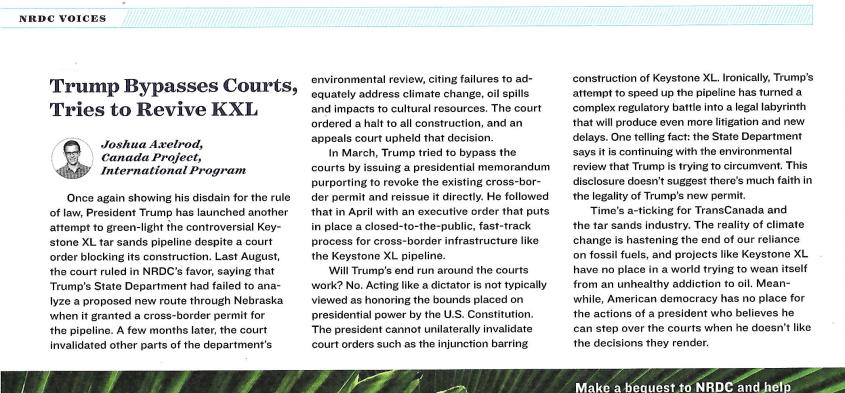
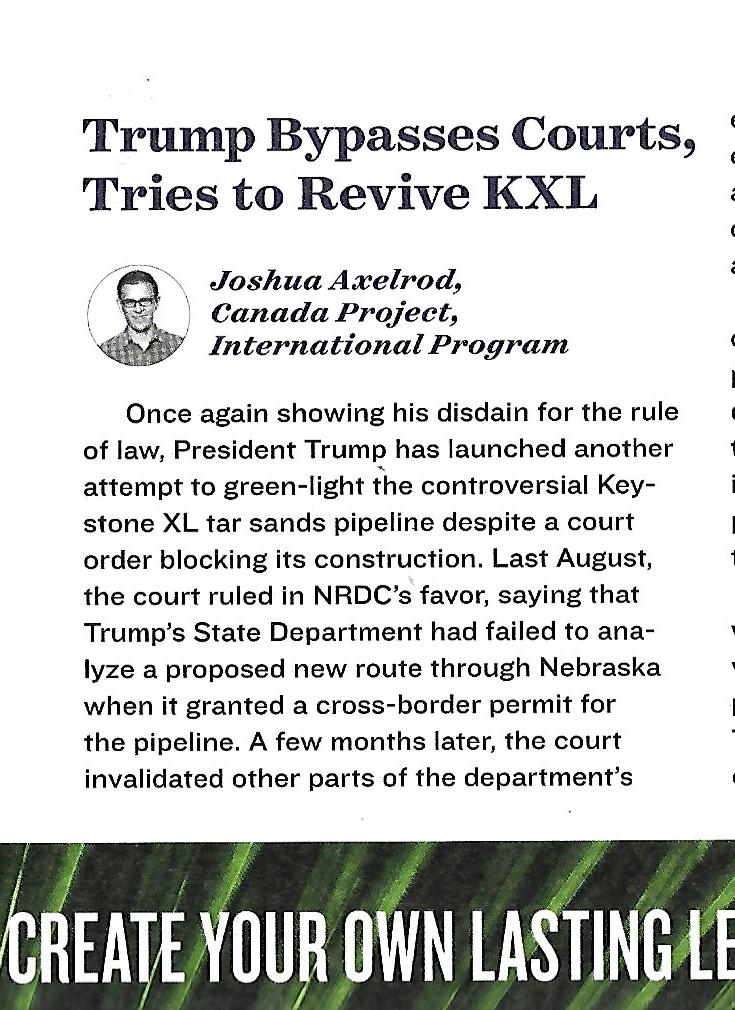
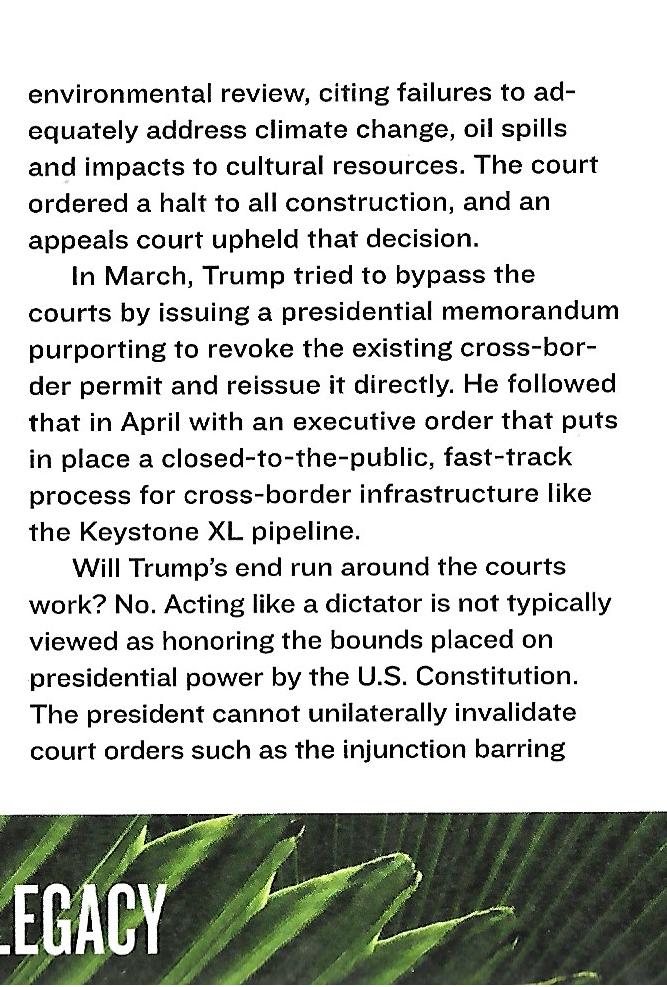
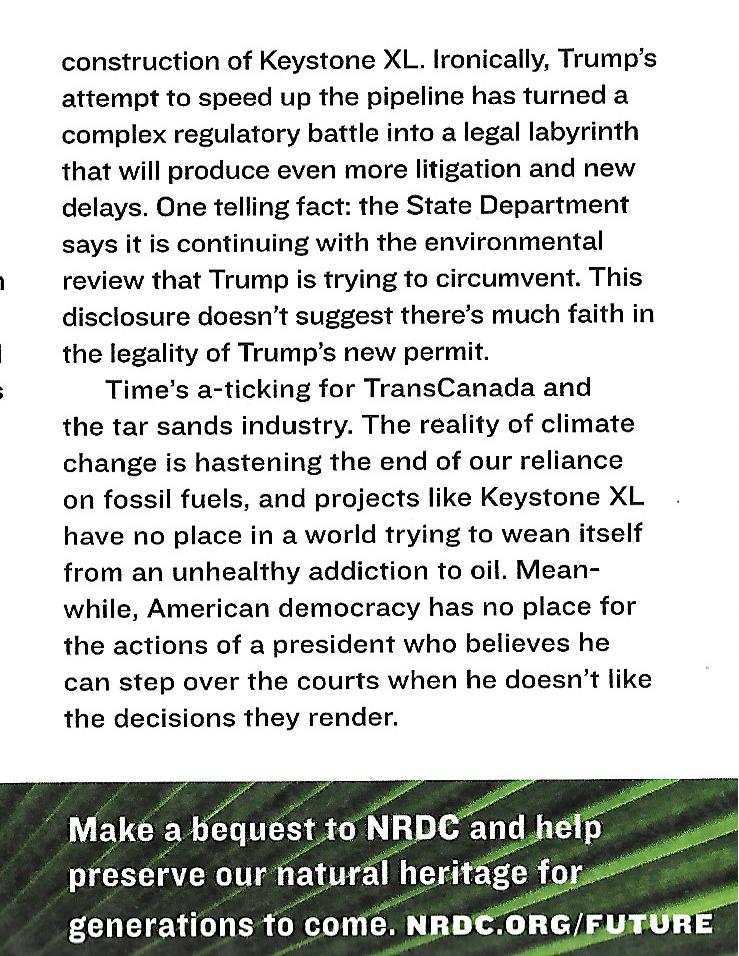


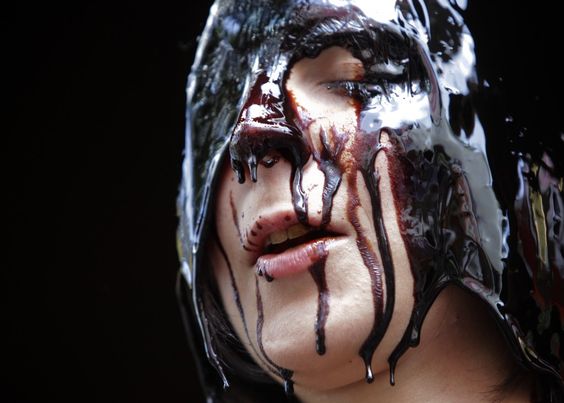


Taken from the NRDC Summer 2019 Newsletter – all pictures are from our archive and are not associated with this article directly.









We humans have a tough time describing the personalities of animals. But each of us can probably say that every animal we’ve ever known, from a dog to a donkey, from the cow in the field to the chipmunk on our windowsill, has a personality we can feel, though we may lack the words to express it. That’s why the ability to share their stories through videos has been such a godsend for animals–enabling animals who may be on the other side of the world to reveal themselves as the unique, silly, wise, grand, naughty and indescribably sweet characters they are.
Thank you. We are delighted to let you “meet” a few more of the precious personalities who are alive today because of your support.

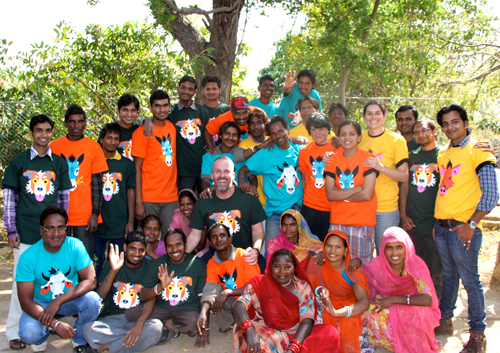
Sweetest puppy looked like a balloon from severe subcutaneous emphysema
This sweetheart’s tail was almost the only thing she could move as her body filled with air. But she seemed to use her wagging tail to ask for help. And she desperately needed it. Her entire body was swelling up from head to toe as air escaped out of her lungs after a probable perforation following a trauma. We could see the outside wound, but not what was happening inside to cause this balloon effect. At Animal Aid’s hospital our medical team diagnosed her with a rare condition called subcutaneous emphysema. We treated her with antibiotics and compression bandages, and within a few days she felt so much better that she has to show you herself! Meet beautiful Puff today!
A piece of string almost cost Jitu his legs
The string was knotted tightly around two of his legs, and this handsome young dog was in an extremely life-threatening situation. We don’t have any information about how this happened but sadly we do suspect it may have been done to him intentionally. The blood supply had been dangerously reduced and the swelling in his legs caused by constricted veins threatened to make his legs necrotic (dead). If a few more days had passed like this, gorgeous Jitu would have likely died a very painful death.
But a caring little boy found this suffering street dog, and told his father, who called Animal Aid to the rescue. Jitu’s suffering must have gone on for several days before he collapsed in agony. But thanks to you, we saved him. Meet sweet Jitu today.
Please donate, because rescue gives animals back their lives.
Babies in the house, jump! jump!
These dream team kids (baby goats) came into the world a couple of days ago. Their mother had such severe mastitis (infected udder) that she cannot feed her babies so we are bottle feeding them and even when her infection has cleared she is unlikely to produce milk for them. As you might imagine, these tiny little twin brothers came out of the shoot silly, naughty, and 100 percent adorable. We’ve named them Marlon and Darlin’.
Please donate for babies whose mothers are ill.
Celebrate the Caregivers: Dr Vaibhav
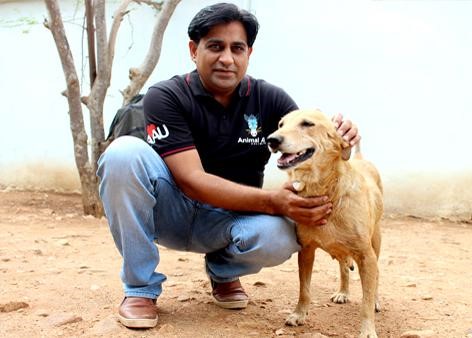
When Dr Vaibhav Harsola speaks, he is careful, gentle, thorough and efficient–just like his surgeries. Whether a routine spay or a complicated wound repair; an eye removal or an amputation, Dr Vaibhav is an expert at saving lives through his outstanding surgical skills.
Dr Vaibhav also brings a great range of administrative skills and is our liaison with government officials for animal issues in Udaipur. We join many animals in our gratitude that we have Vaibhav’s talent on board.

More than 10,000 dogs fall victim to China’s dog meat festival Yulin every year.
Also on 21st of June 2019 it was time again!
But Yulin is everywhere – Every day millions of animals die!
They are cruel pictures and we often hear them screaming.
Every day we see them driving, the trucks with their cargo: Animals! Living and suffering beings!
Often without adequate care they are carted across thousands of miles across Europe.
It’s insane, it’s a crime.
The European Commission currently forecasts around 170 million “useful” livestock transports each year.
Around half a billion poultry, pigs and cattle are transported on European highways every year.
Just so that the animal can be slaughtered cheaply, it is transported to a low-wage country and then back as meat back to the meat counter. A cruel suffering, what the animals have to endure. –
And again every day we read the inflationary question: why so much whirlwind for the dogs of Yulin and not for the millions of other victims?
A mass murder of animals can not be justified because the general logic and ethics says: that happens everywhere.
Yes! This actually happens everywhere and therefore we feel anger, powerlessness, sadness!
Yulin is a crime, as it is the millions of crimes every day against animals we cruelly murder to eat them.
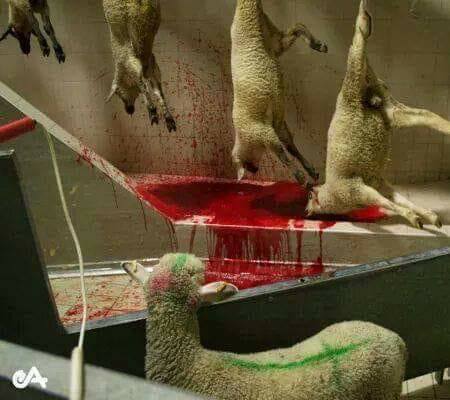
Yulin is indeed everywhere, and our mission is to eliminate EVERY Yulin.
The uprising against Yulin is not because we value a dog’s life more than a pig’s life.
We also do not think that wiser or more productive people have special rights and therefore they should not be tortured or imprisoned.
Every living being has the basic right to life and freedom, the victims of Yulin industry as well as the daily victims of the meat industry.
For this we need an ethical awareness, an extension of the moral capacity of modern consumers to achieve peaceful and just living together with the animals and no longer regard them as slaves and servants.
My best regards to all, Venus
There are no animal markets without suffering and stress for the animals.
Animals’ Angels goes against abuses, and wants to reach an end in the long term markets. In an effort to improve the situation for the animals on the markets, we are in dialogue with traders and local authorities.

Here are some of the reports from the cruel situation in the animal markets, all over the world.
1. Saleyards and animal markets in Australia

Australia is one of the world’s largest ‘producers’ and exporters of so-called ‘farmed animals’ and likes to boast its animal welfare laws. Although these are in force, the animals are not adequately protected on the transports and markets. Dealing with them is rude and careless. Since 2004 Animals’ Angels devotes itself completely to these animals and demands changes.
On markets and sale yards in Australia the most lucrative deals are possible. In these auctions we always see the same problems:
Totally crowded pens.
Animals pushed to the ground, who are barely able to get up.
No water, no food.
No shade despite high temperatures.
Overheated animals.
Missing / insufficient care of injured / ill animals.
Forcible unloading and loading.
Overcrowded transport vehicles.
Animals with trapped body parts, with no possibility to break free.
Transport of non-transportable animals.
Insufficient weather protection: no roofs on the top truck level.
Compliance with animal welfare laws is expected by the parties involved.
2. Animal markets in Bulgaria

In Bulgaria there are only a few animal markets left. The conditions for the animals there are however intolerable and far from the specifications of the EU. Lack of infrastructure, completely unsuitable transport vehicles, a very crude, often brutal handling of the animals and lack of official control lead to serious animal protection violations. That is why Animals’ Angels has been working to improve the situation for the animals on the Bulgarian markets since 2013, and calls for their closure.

In March 2013, Animals’ Angels checked the Bulgarian animal markets for the first time and reported to the competent authorities at national and EU level about the abuses found. Since 2017, we are back on site and unfortunately had to find the same problems again. In March 2018, we reviewed the conditions on site again, but unfortunately without significant improvement.
3. Animal markets in India – respect for cows?

India is known as the land of sacred, flower- decorated cows. But behind the scenes it looks different: India is the world’s largest dairy producer and the largest exporter of beef.
The handling of cattle on markets, during transport and during slaughter is unimaginable cruelty, despite the strict animal welfare laws. This also applies to other farm animals, such as pigs and poultry. Since 2012, we are on site and are committed to patience and perseverance for change.

The handling of the animals is rough and brutal. The transporters are systematically overloaded. We also observe how the animals are fixed on a truck lying on the ground – a particularly perfidious transport practice that we only know from India.
India’s laws to protect animals in transport and markets are more advanced and many times more stringent than in Europe. But the practice looks different:
No shade, despite enormous temperatures.
No water supply.
There is often a lack of loading ramps and the simplest infrastructure.
The unloading and loading of the cattle are hectic and brutal. With sticks, the animals are beaten and pushed, even on the most sensitive parts of the body.
Pigs and chickens are offered for sale with their legs bound on the ground.
The means of transport are absolutely unsuitable for animals. Goats and chickens are transported with laced legs on bicycles, scooters or in luggage compartments. Cattle in car rickshaws or on loading areas of open trucks.
Overloading is one of the main problems. Cattle are forced to stand side by side in the back of the truck or forced to their knees and tied to the ground. The powerful animals tremble all over and urinate out of fear and stress.
There are hardly any controls. Bribery is a ubiquitous problem.
4. Animal markets in Morocco

Agriculture, and especially livestock farming, is one of the main economic pillars of Morocco. Nevertheless, there is no national animal protection law that at least guarantees the minimum requirements for the protection of the “farm animals”. Even today, the majority of ‘farm animals’ are traded and sold in so-called souks (weekly markets in towns and villages). The conditions for the animals and the handling of them are terrible. Since 2014, Animals’ Angels has been there to raise awareness and achieve sustainable change for the animals.

In Morocco mainly small-scale animal husbandry predominate. Many rural families live with and from their animals, which they regularly sell at souks (weekly markets). There we find again and again the same, destructive animal welfare problems:
Brutal and medieval methods of slaughter.
Animals tied together on the legs, necks or wings.
Animals raised and carried on legs and coat.
No water and no food.
No shade, despite high temperatures.
Neglected, exhausted and dehydrated animals.
Injured or sick animals are not cared for.
Missing infrastructure.
Completely overworked ‘loads’ animals, such as donkeys and horses.
The shipments on the markets reflect the catastrophic conditions:
Absolutely unsuitable transport vehicles without loading ramp or ventilation.
Cattle being dragged onto double-decker transporters without a ramp.
Sheep stowed away on roofs of vehicles or in luggage compartments.
Chickens hanging upside down or transported in sacks.
Very brutal handling during unloading / loading.
Animal welfare is irrelevant – despite the fact that the Moroccan government gives agricultural development top priority. To date, there is no animal protection law in Morocco and there is no official contro
5. Animal markets in Poland

While ‘slaughter’ animal markets in Germany are almost a thing of the past, in Poland they are still an integral part of ‘livestock farming’. Animals’ Angels has been operating in Poland since 2003. With perseverance, perseverance and a good local partner, we have contributed to the fact that Polish livestock has become firmly established in the critical public and political discourse.

In most animal markets in Poland, the current EU legislation is not implemented:
The animals have no access to water.
Most of them are short on hard concrete floor.
The transport vehicles are often unsuitable.
Even if fixed ramps are available, many animals are pulled without ramp on the loading areas, pushed and beaten.
Poultry is sold and transported in plastic bags and potato sacks.
The authorities are still far too seldom in violation of the Animal Welfare Act.
6. Animal markets in Romania

Large parts of the population of Romania live in the countryside and breed and keep animals for their own needs. Since these animals also have a lively trade, local animal markets have a long tradition here. Since Romania joined the EU in 2007, EU legislation on the protection of animals during transport has also applied here. However, our research in recent years clearly shows that these laws are widely disregarded in the markets.

In the animal markets in Romania, the applicable EU laws are not enforced. We constantly observe and document similar problems there:
The animals are transported in all kinds of inappropriate vehicles: on horse-drawn vehicles, bicycles, in the trunk of passenger cars or on the back of mini-vans and sprinters.
Due to the lack of infrastructure, the animals are often sold directly out of the vehicles, and not placed in pens.
The animals usually do not get water – even in summer.
The animals are tied to the legs, placed on the often wet, cold and dirty soil, and so offered for sale.
Violent treatment, such. B. wearing or grinding on individual limbs, wings or ears.
Illegal slaughter on some markets (mainly before Christmas or Easter).

So-called ‘train tests’ for horses, in which the animals usually have to pull heavy objects under lashes to demonstrate their strength.
No or insufficient supervision or sanctions by the responsible veterinarian.
7. Animal markets in Spain

Animal markets still play an important role, especially in northwestern Spain. First and foremost, cattle, but also horses, sheep and pigs are traded on the weekly markets. From there they are transported to various regions throughout Spain as well as partly to France and Portugal. So-called ‘Ferias’ – traditional animal markets that take place once a year – are available almost everywhere in Spain.
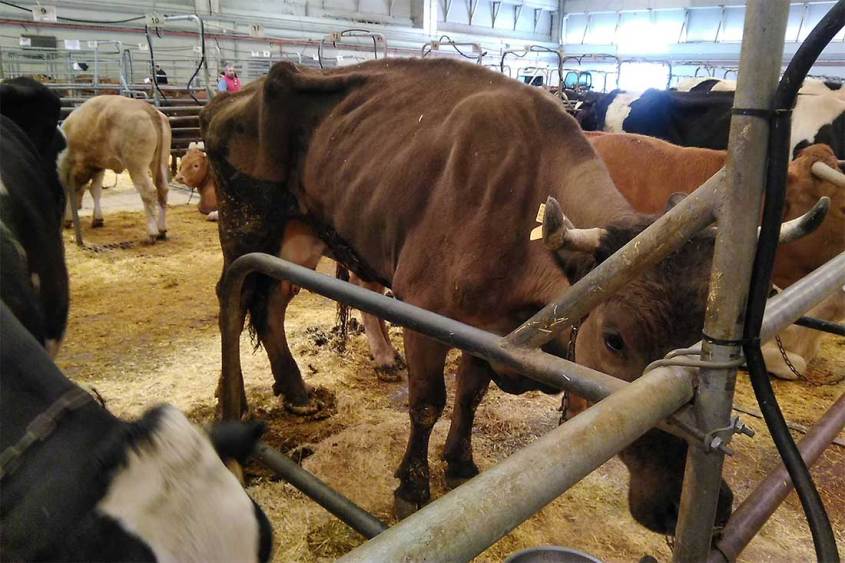
At least here, together with ANDA (Asociación Nacional para la Defensa de los Animales), we have achieved much for the animals on the markets:
We have made animal welfare on the markets in Spain
Improved infrastructures for the animals in all markets
Prohibition of certain animal tormenting measures
Increased and improved veterinary controls
Euthanasia of severely injured and sick animals in the markets
Animal welfare campaigns in the markets
We have established a good relationship with the market directors
For many traders and farmers, we have started a rethinking process
Nevertheless, there is still (too) much to do. We believe that the markets are phased out. They should be replaced by other trade routes to spare the animals additional stress. As long as they still exist, we use them for intensive controls and education and training campaigns.
8. Animal markets in Tanzania

In Africa, Tanzania is considered a showcase country when it comes to the protection of “Nutz’tieren. Rightly and wrongly, as we find. On the one hand, the country has progressive legislation and the government trains nationwide animal welfare inspectors. But the markets and vans are in chaos and suffering. Of the ambitions of the state government is hardly anything in the animals. Since 2014, we work locally and focus on training and training.

The strict animal welfare law does not apply to the animals in Tanzania. On markets, during transport and when the animals arrive at the slaughterhouse, we repeatedly document the same problems:
Brutal, chaotic loading and unloading.
Lack of care for injured animals.
Completely overloaded transport vehicles.
Animals tied together on the legs.
Exhausted and dehydrated animals.
Inadequate, ailing or missing infrastructure.
Inappropriate transport vehicles.
No water and food.
No shade.
Despite modern legislation and the regular control of markets and animal transports, the authorities have so far held nobody accountable for the lack of care and brutal treatment of the animals.
My comment: In Germany, the animal welfare deficiencies at these events are inherent in the system – animal suffering is under the cover of animal love.
It is mainly reported on the animal markets from abroad.
But also on many weekends animal markets take place in Germany and there countless animals suffer from fear and stress – to the pure entertainment of visitors and hobby breeders.
In Bavaria alone, more than 700 animal markets take place each year. At the same time these animal markets are moving in a kind of “lawless space“ where they are rarely or only insufficiently controlled.
It is traded on countless exchanges with all living beings, which the “market” has to offer: Birds, reptiles, amphibians, horses, small mammals, but also dogs and cats are sold like “junk ware”.
The suffering of the animals does not count for dealers, breeders and many visitors.
“Animals are the pitiful slaves and victims of the most brutal part of humanity”. (John Stuart Mill)
My best regards to all, Venus

FOR IMMEDIATE RELEASE – June 21, 2019

Contacts:
Betsy Klein, I AM WOLF NATION, (714) 478-0353, b@planb.foundation
Matt Francis, Project Coyote, (435) 659-9635, mfrancis@projectcoyote.org
Katie Stennes, Project Coyote, (240) 328-5369, kstennes@projectcoyote.org
Lain Kahlstrom, Animal Wellness Action, (480) 565-0655, lkahlstrom@outlook.com
Phoenix, AZ – Today the Arizona Game and Fish Commission (AZGF) voted unanimously (4 to 0) to ban wildlife killing contests (WKCs) for predatory and furbearing species in Arizona. For months a coalition comprised of concerned citizens and wildlife conservation organizations has worked tirelessly to ban WKCs statewide. Wildlife killing contests are barbaric events wherein participants compete to kill the greatest number, the largest, or even the youngest of the target wildlife species for “entertainment” and prizes. Hundreds of coyotes, bobcats, cougars, foxes and other species are killed in these events every year in Arizona.
In 2018 and 2019, Dewey-Humboldt, Flagstaff, Coconino County and Yavapai County passed resolutions condemning the events (Tucson and Pima passed similar resolutions in recent years). New Mexico and Vermont banned coyote killing contests in 2019 and 2018, respectively. California passed a wildlife killing contest regulation in 2014. Recently the Washington Post highlighted the Santa Slay Coyote Tournament, which takes place annually in Yavapai County, noting the national public outcry against these contests.
“We commend the Commission for adopting a rule to crack down on wildlife killing contests for predatory and furbearing species including coyotes and foxes,” said Matt Francis, Arizona State Representative for Project Coyote. “While we have concerns that potential loopholes may allow these contests to continue, we were pleased to hear that Commissioner Davis is committed to amending the rule if necessary to prevent participants from evading the ban. We all want the same thing: to end the cruel and ecologically destructive killing of the public’s wildlife for no good reason.”
“I believe Commissioner Davis said it best when he said it is the responsibility of the Commission to ensure their rules uphold the highest ethical principles, and they prohibit the take and use of wildlife for economic and illegitimate purposes,” stated I AM Wolf Nation Executive Director Betsy Klein. “As stewards of all wildlife, we owe this to present and future generations. While the rule leaves room for these atrocities to continue, it is a step in the right direction and we are thankful to the Commission for proposing such a rule in the first place.”
The coalition has been working to close loopholes in the rule that may allow WKC participants and organizers to continue their contests so long as participants don’t officially “register or record entry” or “pay a fee.” The rule as passed today also leaves animals such as prairie dogs and rabbits unprotected.
Today Commissioner Davis noted that he believed 99 percent of hunters would abide by the new rule.
Over 70 conservation scientists have signed a statement condemning WKCs on ecological and ethical grounds (see a factsheet here explaining why indiscriminately killing coyotes is counterproductive).
The Arizona Game and Fish Department (AZGFD) itself recognizes that killing coyotes does not reduce their numbers, stating on their website: “Removing coyotes from one area generally results in other coyotes moving in from surrounding areas and breeding faster.” There is no way to know the effect that wildlife killing contests have on coyote populations in Arizona because AZGFD does not monitor the contests or track the number of coyotes killed in these events.
The coalition is hopeful that today’s action by the Game and Fish Commission put an end to the scientifically and ethically indefensible practice of wildlife killing contests in Arizona.
***
Footage of today’s Commission meeting is available here.
Read an Op Ed in today’s Arizona Daily Star by Dan Flores, author and Project Coyote Ambassador, and David Parsons, retired wildlife biologist for the U.S. Fish and Wildlife Service and Project Coyote Science Advisory Board Member condemning wildlife killing contests.
Project Coyote, a national nonprofit organization headquartered in Northern California, is a North American coalition of wildlife educators, scientists, ranchers, and community leaders promoting coexistence between people and wildlife, and compassionate conservation through education, science, and advocacy. For more information, visit ProjectCoyote.org
Project Coyote is a fiscally sponsored project of Earth Island Institute, which has received a Four Star rating from Charity Navigator.
|
|
||||||||||||||
|